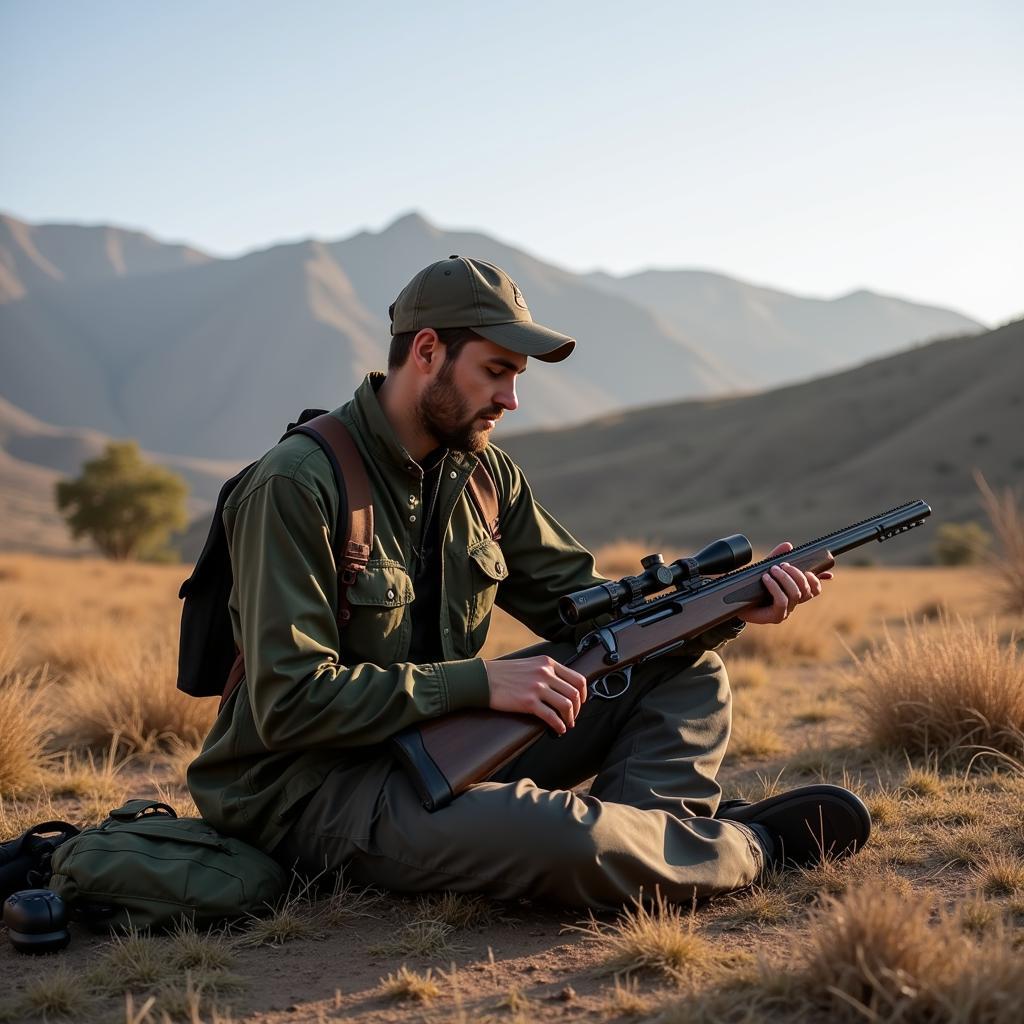Hunting In Pakistan has a long and complex history, deeply intertwined with the country’s diverse landscapes and cultural traditions. From the towering peaks of the Himalayas to the arid plains of Balochistan, Pakistan offers a variety of hunting experiences, attracting both local enthusiasts and international sportsmen. This guide delves into the various aspects of hunting in Pakistan, exploring the regulations, popular game species, ethical considerations, and the overall impact of this activity on the environment.
Understanding Hunting Regulations in Pakistan
Navigating the legalities surrounding hunting in Pakistan is crucial for both residents and visitors. Each province has its own set of regulations and licensing procedures, often varying depending on the specific game species and hunting season. Hunters must obtain the necessary permits and licenses before engaging in any hunting activity. Failure to comply with these regulations can result in hefty fines, confiscation of equipment, and even imprisonment. It’s also important to understand the restrictions on hunting endangered or protected species. Sustainable hunting practices are vital for maintaining the delicate balance of Pakistan’s ecosystems.
After this introductory paragraph, let’s explore the different types of hunting licenses available in Pakistan. More information on available hunting guns can be found at hunting guns for sale in pakistan.
Popular Game Species in Pakistan
Pakistan boasts a rich biodiversity, offering hunters a diverse range of game species. From the majestic Markhor, the national animal of Pakistan, to the elusive Urial sheep, the country’s mountainous regions provide challenging yet rewarding hunts. In the lowlands, hunters can pursue game birds such as partridges, quails, and ducks. Sustainable hunting practices are essential to ensuring the long-term viability of these populations. Overhunting and poaching pose significant threats to the delicate balance of the ecosystem. Hunters must adhere to ethical hunting practices and respect the established quotas for each species.
Ethical Considerations and Conservation Efforts
Ethical hunting plays a crucial role in conservation efforts in Pakistan. Responsible hunters contribute to wildlife management programs by adhering to regulations, reporting poaching activities, and supporting local communities involved in conservation initiatives. Furthermore, regulated hunting can generate revenue that can be reinvested in protecting endangered species and their habitats. It’s important for hunters to be mindful of their impact on the environment and to prioritize the long-term health of the ecosystem over short-term gains.
Is hunting in Pakistan ethical? Yes, when practiced responsibly and within the established regulations. Ethical hunters play a crucial role in conservation by contributing to population control and habitat preservation. Find out more about Pakistan’s native bird species at native birds of pakistan.
The Impact of Hunting on Local Communities
Hunting can have a significant impact on local communities in Pakistan, particularly in rural areas. It can provide a source of income through guiding services, lodging, and other related businesses. Moreover, regulated hunting can help control populations of game animals that might otherwise damage crops or pose a threat to livestock. However, it’s important to ensure that hunting activities are managed sustainably and that local communities benefit directly from these activities.
What is the future of hunting in Pakistan?
The future of hunting in Pakistan hinges on striking a balance between conservation, economic development, and cultural traditions. Implementing stricter regulations, promoting ethical hunting practices, and involving local communities in wildlife management will be crucial for ensuring the sustainability of this activity. More information on crane hunting can be found at crane hunting in pakistan.
Mr. Ali Khan, Wildlife Conservationist, Islamabad, states, “Sustainable hunting practices are vital for preserving Pakistan’s rich biodiversity for future generations. We must work together to combat poaching and promote responsible hunting.”
Conclusion
Hunting in Pakistan offers a unique blend of adventure, cultural experience, and ecological responsibility. By understanding and adhering to the regulations, hunters can contribute to the conservation of Pakistan’s diverse wildlife while respecting local traditions. For a safe and rewarding hunting experience, prioritize ethical practices and contribute to the sustainable management of this valuable resource. Remember to check the latest regulations before embarking on your hunting trip.
 Hunter Preparing for a Hunt in Pakistan
Hunter Preparing for a Hunt in Pakistan
FAQ
- What are the legal requirements for hunting in Pakistan? Each province has its own specific regulations and licensing procedures.
- What are the most popular game species in Pakistan? Popular game species include Markhor, Urial sheep, partridges, quails, and ducks.
- How can I contribute to ethical hunting practices in Pakistan? Adhere to regulations, report poaching, and support local conservation initiatives.
- What is the role of hunting in conservation efforts? Hunting can generate revenue for conservation programs and help control animal populations.
- How does hunting impact local communities? Hunting can provide income and resources for local communities, particularly in rural areas.
- What is the price of a .223 American gun in Pakistan? For pricing information, see 223 american gun price in pakistan.
- What’s the cost of a KitKat 4 Fingers in Pakistan? Find the current price at kitkat 4 fingers price in pakistan.
Dr. Fatima Shah, Biologist, Lahore, emphasizes, “Hunting plays a complex role in Pakistan’s ecosystem. It’s crucial to balance the needs of local communities with the long-term health of our wildlife populations.”
For any assistance, please contact us at Phone: +923337849799, Email: [email protected] or visit our office at Dera Ghazi Khan Rd, Rakhni, Barkhan, Balochistan, Pakistan. We have a 24/7 customer service team.